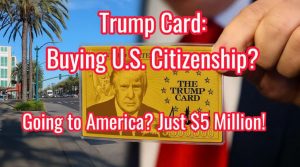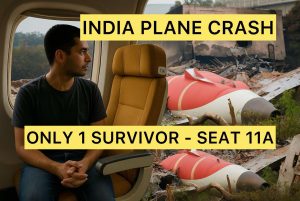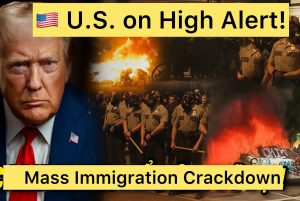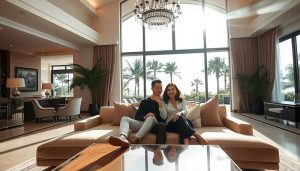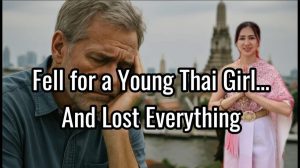Trump Tower Ho Chi Minh City: A Billion-Dollar Gamble or Vietnam’s Global Breakthrough?

Trump Tower Ho Chi Minh City: A Billion-Dollar Gamble or Vietnam’s Global Breakthrough?
In May 2025, Eric Trump — Executive Vice President of the Trump Organization and son of former U.S. President Donald Trump — touched down in Vietnam. While his appearance at the groundbreaking ceremony of a $1.5 billion golf resort in Hung Yen raised some eyebrows, it was the next revelation that sparked even more attention:
The Trump Organization is exploring plans to build a Trump Tower in the heart of Ho Chi Minh City.
Is this simply a high-profile branding move? Or is Vietnam now firmly in the sights of a global real estate empire playing a long game in Southeast Asia?
Vietnam’s New Role in Global Investment
For years, Vietnam has quietly transformed itself from an “emerging market” into a dynamic economy, marked by:
- Consistent GDP growth (6–8%) over the past decade,
- A rapidly expanding middle class,
- A young, tech-savvy workforce, and
- A stable political environment that supports foreign direct investment.
Ho Chi Minh City, the country’s financial and commercial hub, is increasingly positioning itself as a gateway to Asia — not unlike Bangkok or Singapore two decades ago. The real estate market, particularly in luxury segments, is catching the eye of global investors.
The Trump Organization’s interest isn’t coincidental. It’s strategic.
Trump Tower: More Than Just Steel and Glass
Trump Tower, wherever it’s built, is rarely just a building. It functions as a symbol — of wealth, power, prestige, and political brand extension. From New York to Istanbul, Manila to Mumbai, Trump Towers signal more than just architectural ambition. They often act as:
- Catalysts for satellite investments (restaurants, luxury retail, hospitality),
- Signals of market readiness for ultra-high-end real estate, and
- Anchors for brand-led economic clusters.
In Ho Chi Minh City, such a tower could redefine the real estate landscape, not just attracting wealthy buyers, but also signaling to the world that Vietnam is ready to play in the global league of ultra-luxury living.
Hung Yen: Ground Zero for Trump’s Vietnam Strategy
While the Trump Tower remains in planning stages, one thing is already real: the $1.5 billion golf and resort complex in Hung Yen Province. Covering nearly 1,000 hectares, the project includes:
- Three 18-hole golf courses meeting international standards,
- A 5-star resort and conference center,
- Luxury villas, spa facilities, and retail zones.
The groundbreaking ceremony, attended by Prime Minister Pham Minh Chinh and Eric Trump, makes it clear this isn’t just a PR stunt. It’s a massive real estate play, backed by domestic giant Kinh Bac City Group, with the Trump brand licensing layered on top.
This model — where the local partner invests capital and manages construction, while the Trump Organization licenses its name and standards — is a familiar one.
Two Models of Trump Expansion: Direct Investment vs. Brand Licensing
Over the past two decades, Trump has used two primary business models to expand globally:
1. Direct Investment Model
Used in places like New York and Chicago, this involves Trump Organization:
- Investing its own capital,
- Owning the property,
- Managing construction and operations.
This model gives Trump full control — but also full risk.
2. Brand Licensing (License Deal)
Far more common internationally, this model sees Trump:
- Licensing the brand name to a local developer,
- Providing design and branding standards,
- Sometimes sending oversight consultants,
- In exchange for:
- An upfront fee, and
- A percentage of annual revenue or profit.
This model was used for Trump Towers in Istanbul, Manila, Mumbai, and Punta del Este, where Trump invested no capital but still benefited financially and reputationally.
It’s highly likely that the same model is being applied in Vietnam — especially for the golf resort and any future Trump Tower.
Opportunities for Vietnam
The benefits of hosting the Trump brand are potentially significant:
1. International Visibility
Vietnam — particularly Ho Chi Minh City — will receive global media attention simply by being associated with the Trump name.
2. High-End Investment Magnet
The presence of a Trump Tower can attract other luxury brands, investors, and business travelers who associate such projects with world-class infrastructure and services.
3. Tourism & Hospitality Growth
The golf resort in Hung Yen is expected to draw high-spending tourists, open thousands of jobs, and help redistribute tourism flow from the coast to inland regions.
4. Soft Power Leverage
The association with a globally recognized brand — even a controversial one — enhances Vietnam’s soft power projection, especially if managed carefully.
But the Risks Are Real
1. Political Controversy
Donald Trump is polarizing, even in the U.S. Associating with his brand may raise concerns both domestically and internationally — especially if Trump returns to political office.
2. Brand Risk
The Trump Organization has been subject to multiple investigations in the U.S., including tax evasion, fraud, and misuse of funds. Vietnamese stakeholders must conduct due diligence before entering into any binding agreements.
3. “Brand Over Substance” Trap
Without strong regulatory oversight, projects could stall or underdeliver — leaving Vietnam with a half-built structure bearing a controversial name, and little economic value.
Vietnam: A Key Piece in Trump’s Southeast Asia Chessboard
Trump’s move into Vietnam isn’t random. It follows strategic entries into:
- The Philippines (Trump Tower Manila),
- India (Trump Towers in Pune, Mumbai, and Kolkata),
- Uruguay, Turkey, Indonesia, and more.
These markets share similar traits:
- A growing upper-middle class,
- Appetite for luxury branding,
- A legal environment that still allows for creative (and aggressive) business structuring.
Vietnam has it all: a young population, political stability, rising wealth, and an increasingly confident position on the world stage. If the Trump Organization plays its cards right — and if Vietnam negotiates with eyes wide open — this partnership could work.
Conclusion: Vietnam Must Be Strategic, Not Star-Struck
Welcoming global brands like Trump can elevate Vietnam’s profile, but branding is not enough.
The real challenge is ensuring transparent, well-managed execution that delivers long-term value.
Vietnam should:
- Evaluate not just the brand, but the track record and legal standing of its partners,
- Create strong oversight mechanisms,
- Focus on local benefit — jobs, infrastructure, taxes — not just the glitz.
Because if Trump Tower does rise in Ho Chi Minh City, it should be more than a landmark.
It should be a symbol of how Vietnam negotiates with the world: boldly, wisely, and on its own terms.
TrumpTowerVietnam #EricTrump #VietnamInvestment #RealEstateAsia #HoChiMinhCity #TrumpBrand #LuxuryRealEstate #VietnamEconomy
